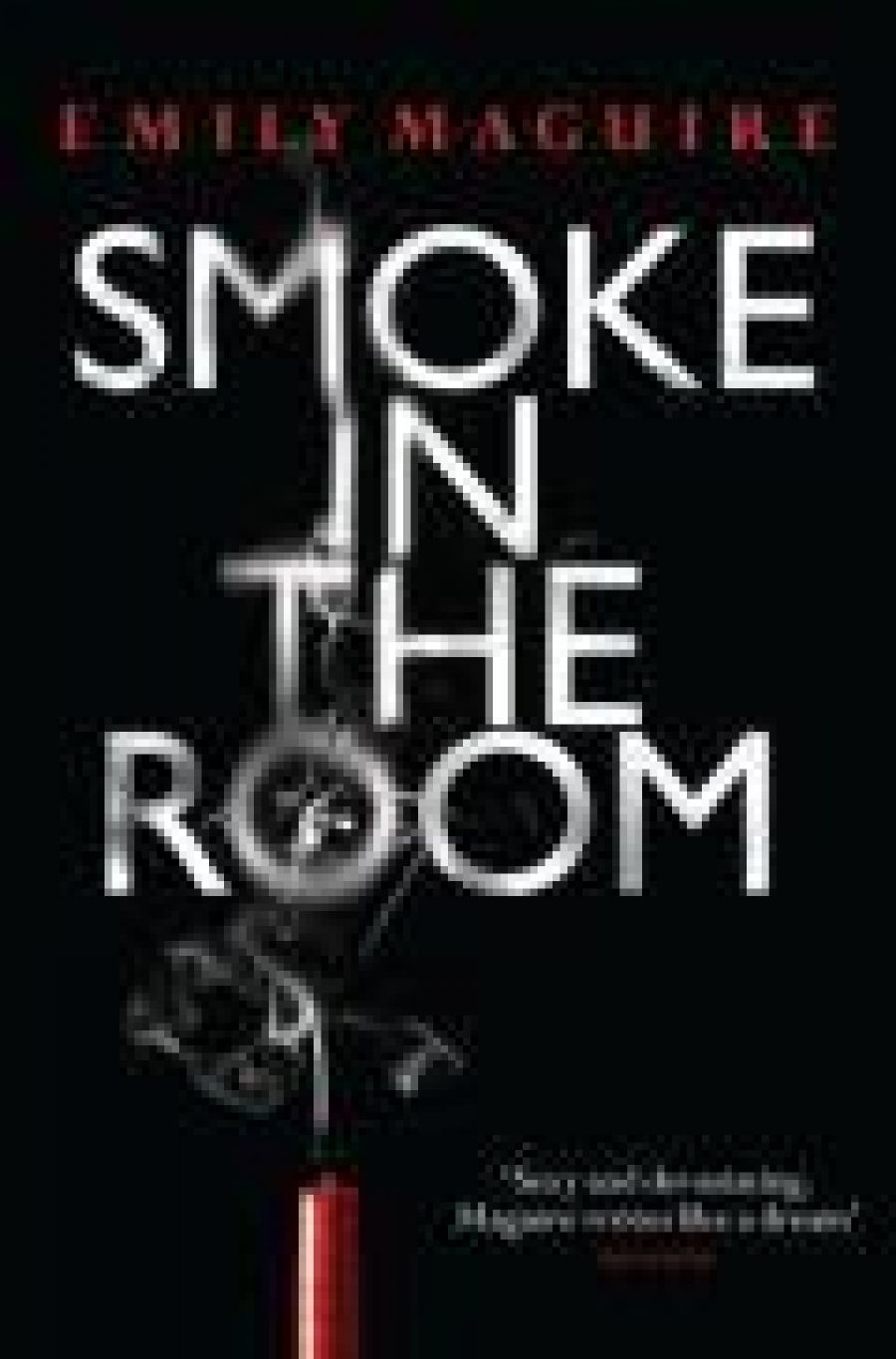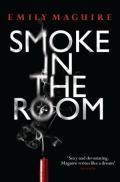
- Free Article: No
- Contents Category: Fiction
- Review Article: Yes
- Article Title: Bruised beauty
- Online Only: No
- Custom Highlight Text:
It takes nerve to create three self-absorbed characters, set them in dingy inner-urban Sydney over one summer, give them booze, cigarettes and tattoos, and locate the drama in a share house without resorting to a He Died with a Falafel in His Hand fiasco of bad manners. But with this scenario Emily Maguire, in her surreptitiously brilliant third novel, has instead created a riveting emotional composition which plays out with the basso of a tragic opera, the discipline of a stage play and the authenticity of real life. The book sucks us into its melodramas and subtleties; we enter both a plausible and dynamic depiction of contemporary dysfunction, and a carefully crafted parable on the gifts and hazards of caring for one another.
- Book 1 Title: Smoke in The Room
- Book 1 Biblio: Picador, $29.99 pb, 282 pp
- Book 1 Cover Small (400 x 600):

Minutes after meeting Adam, one of two new housemates drafted by her grandmother, Katie mischievously clutches his buttocks, then backs off, surprised by the hurt in his eyes. Her noticing is our first clue: Katie is not the ditz she appears. She is, as we discover, a far more mysterious and deeply moving character. Her depths are revealed with exquisite delicacy. Her voice is natural, ingenuous, intelligent. Describing her own mood, Katie insists that it’s ‘peppery’. She hurts herself with knives, with heated metal; the brighter she shines, the closer she is to igniting. She is, as we discover, not simply erratic but suffering. Charm gives way to crisis, allowing her true, stronger charm to show. A heartbreaker, one might say, though Katie might punch you for it.
The American Adam is himself not what he appears with his muscled chest, ironed jeans and brilliantly white teeth. He is indeed profoundly injured by the recent death of his wife and his subsequent stranding in Australia. ‘What’s wrong with him?’ Katie asks. ‘Is he autistic or something?’ Bleak anhedonia has him fall towards Katie’s hyperactive desire, and their twin agonies spiral together in bouts of drinking, confession and sex. Deftly and savagely, Maguire evokes their folie à deux, a union recognisable to anyone who has been desperate and bitter and looking for comfort in dangerous places: a mismatched coupling that gives the novel its manic momentum. Despite himself, Adam begins to care again; caring, he discovers, is as dangerous as oblivion.
Witness to Katie and Adam’s separate ordeals is Graeme, the third inhabitant of the flat. Older than the others, employed doing good works in a refugee advocacy agency, he is a man charred by life to the point where he is almost ashes. He listens to Katie’s extempore monologues, patiently tends her self-inflicted wounds and eats alone in his room.
He had shown her kindness and affection tonight and even – maybe she imagined it, but she didn’t think so – recognition. Graeme had looked at her, for a second at least, the way she’d hoped Adam would when he saw what she had done to her face.
But Graeme has cared too much in the past: shrinking from the care of others, what happens in the share house hurts him like a bruise. If Katie is on the run from herself and Adam bereft of the one he loves, Graeme completes this triumvirate of loneliness with his witting isolation from all who might care for him.
Maguire has a forensic eye for gesture and dialogue; her vignettes of behaviour, as when Graeme empties his wallet for a beggar and walks away sweating, or Katie biting Adam’s fingers as she says she loves him, constantly slice the imagination. The tension of the novel is wrought and dramatic, but balanced. By alternately inhabiting each character, Maguire orchestrates our sympathy so that each moral judgement dissolves no sooner than we have made it. Her protagonists move in the tragic destiny of theatrical tradition, entangling with each other’s stories: a reactive drama. But each is also dowdy, familiar, mundane. This is a parable of the real.
It would be specious to describe more of the plot: it is a drama of people, three fully realised, prismatic people in attitudes of struggle and flight, whose individual sadnesses are almost unbearable. It is to Maguire’s credit that Katie, Adam and Graeme, each tormented, isolated and even monstrous, are not themselves unbearable to spend time with; on the contrary, this novel of claustrophobic pressure is buoyant, often witty. It is not a depressing read, though it contains horror and misery. The understatement of its writing and its tenderness and unsentimentality give Smoke in the Room a compelling and convincing energy that holds the reader absorbed, then gently lets her go.


Comments powered by CComment